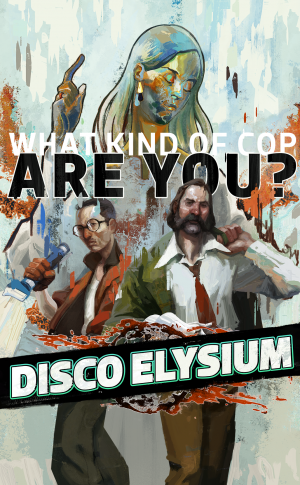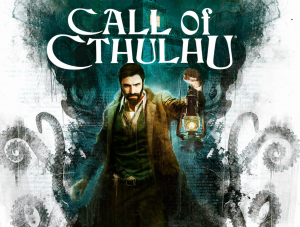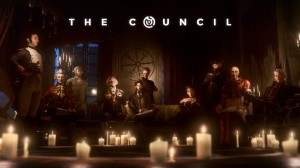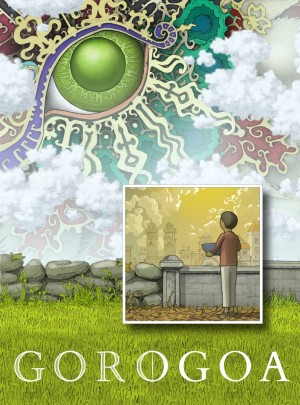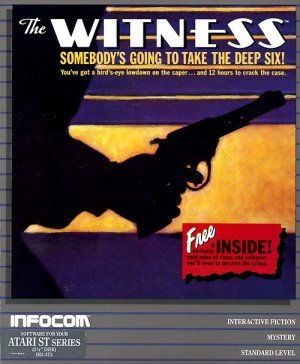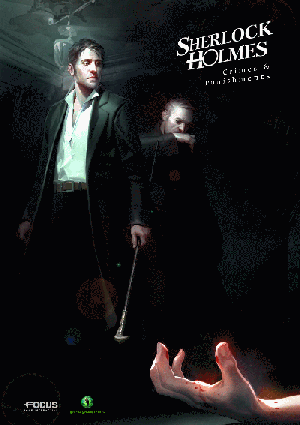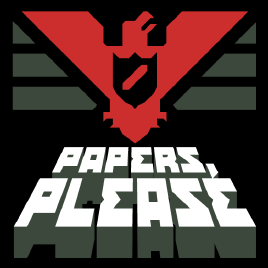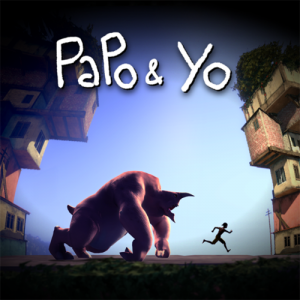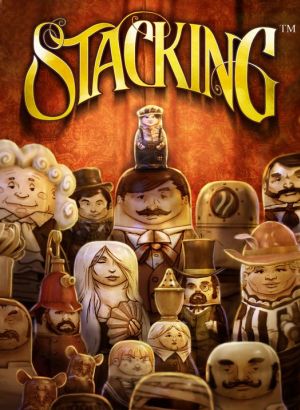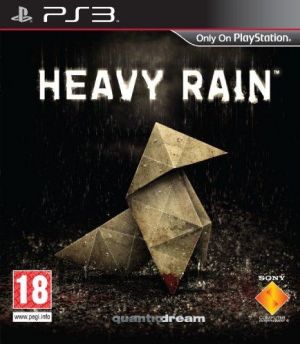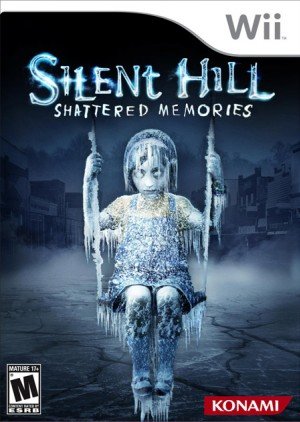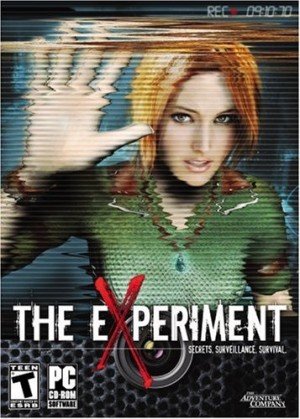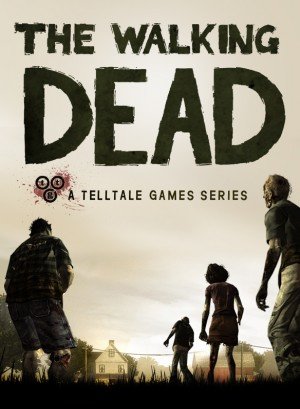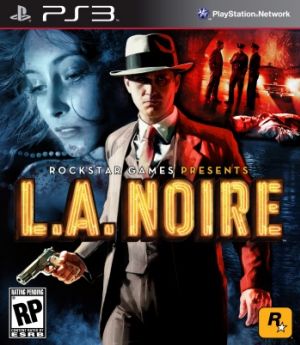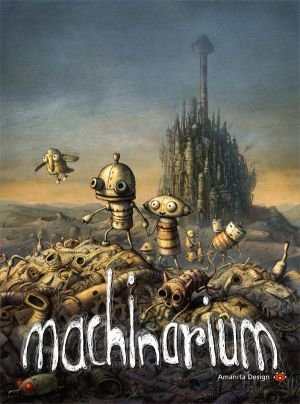Best ConceptAggie Award Winners

A somewhat ambiguous category meant to highlight any unusual, distinctive element. A creative concept can run the gamut from unique story premise to clever game mechanics, from stylistic choice to technical innovation. For the purpose of this award, it doesn’t even need to have been successfully implemented, as it’s the idea itself that deserves the acknowledgement in a genre renowned for its conservative approach. (Note: VR is a shared evolution among many new adventures, so that alone does not constitute an individual game concept.)
» Aggie Awards - category overview
The Aggie award winners:
Disco Elysium (2019 winner)
Your memory is lost to a miasma of drugs and alcohol. Your necktie talks to you. You say questionable things to everyone around you. Despite it all, you have a job to do. ZA/UM’s Disco Elysium is an investigative murder mystery so thoroughly wrapped in RPG trappings that you’d swear it WAS one. Start playing, however, and you’ll see that it straddles the fine line between adventure and role-playing more seamlessly than perhaps any game before it. Interview people, fill your inventory with evidence, check off tasks in your journal, distribute points across a handful of stats and skills, and along the way make the choices that define you both as a person and an officer of the law. Since there's no combat, just relax and let this text-heavy mystery penetrate your brain with heady ideas affecting wide-ranging emotions from sorrow to humorous relief. Rather than half-adventure, half-RPG, Disco Elysium feels like 100% both, and for that it easily cops our award for Best Concept.
2019 winner of:
2019 Readers Choice' winner of:
For 2018 there were 2 winners in the category Best Concept.
Call of Cthulhu (2018 tied-winner)
Great minds think alike! While narrative RPGs aren’t entirely new, historically they’ve been a mash-up of traditional genre conventions rather than an integration of role-playing into a proper adventure game. But this year, not one but TWO different games embraced the complex challenge of tailoring rich investigative mysteries to personal gameplay preferences. Unavowed did this as well, but to a lesser extent than Call of Cthulhu and The Council, which implemented a similar conceit in surprisingly different ways. They did so to varying degrees of success overall, but it’s the core idea driving each that has earned them the shared 2018 Aggie Award for Best Concept, along with our sincere hope that we see more hybrids of this type in future.
Cyanide Studio's Call of Cthulhu is Lovecraft done right, and in a way that we’ve really never seen in a video game before. As a P.I. visiting the island township of Darkwater in 1924, you find yourself beset on all sides by the threat of madness, with nothing but your chosen abilities to further your investigation and guard you from unspeakable cosmic entities – what little comfort that is. Whether you're the type of player who favours the more delicate solutions that persuasion and observation skills afford, or one who prefers the reliability of physical strength, there are plenty of ways to customize your gameplay experience. Each of them are equally valid but available only to those whose attributes are best suited to resolving them, making the distribution of “Character Points” a thoughtful, personal matter throughout. These role-playing elements come honestly, as the game is based on Chaosium’s pen and paper RPG, and they add a welcome strategic element to the rich Lovecraftian experience.
2018 winner of:
2018 Readers Choice' winner of:
- No awards won
The Council (2018 tied-winner)
In a game about manipulating others into seeing things your way, two things are of great importance: a sense of agency, and conversations that flow naturally. By tapping into RPG mechanics, Big Bad Wolf’s The Council does far more with these than a more conventional point-and-click can do. Its resource management and skill point systems encourage planning and allow for many small but very tangible rewards to be earned for thoroughness and early successes. The confrontation system is far more organic and tense than the infinite retries of a traditional dialogue tree, further promoting figuring out people's strengths, weaknesses and secrets beforehand. With failure punished both statistically and story-wise, this is a game where every choice is meaningful but not equally viable. The added complexity is a refreshing change from the norm that makes it hard to go back to the same old-fashioned click-through conversations.
2018 winner of:
2018 Readers Choice' winner of:
- No awards won
Gorogoa (2017 winner)
Sometimes an idea comes along that is so brilliant and yet so mind-blowingly simple that in retrospect one wonders why no one ever thought of it before. The indie puzzler Gorogoa is just such an example, but don’t mistake its conceptual simplicity for ease, as its unique approach to gameplay is so deeply, elegantly layered that it will pose a serious challenge. It doesn’t sound like much on paper: To help a young boy on his quest to find a mythical creature, players must piece together and connect pictures contained within four square panels. That description may seem straightforward, but deciphering just how these images fit together becomes increasingly complex. Not all ingenious concepts actually work, but here it does, as Jason Roberts spent many years honing Gorogoa into a masterwork of innovative game design.
Achieving your goals requires paying attention to even the tiniest of details in the lovely hand-drawn illustrations. At first the images may seem entirely disconnected, but look closer, experiment, and eventually a pattern will emerge. Tiles can be zoomed in – sometimes to entirely different scenes! – as well as rotated, swapped out or overlaid on top of others, occasionally only when timed just so. The mechanics are incredibly basic, but the gameplay possibilities they create are anything but. It takes a while to get used to the notion, but it's a wonderful spin on traditional point-and-click adventures that you'll continue to crave even after the largely-impenetrable story wraps up, making Gorogoa the winner of our Best Concept Aggie in the face of some fierce competition.
2017 winner of:
2017 Readers Choice' winner of:
The Witness (2016 winner)
“Do you like drawing a line through a maze? Good, because that’s mostly what you’ll be doing here.” This is how critics of Jonathan Blow’s The Witness could sum it up with disdain. The thing is, they’re not really wrong. The Witness truly is all about puzzles, and each and every one of its several hundred conundrums does indeed involve drawing a line through a maze from beginning to end. Yet there is a tranquil quality, a serene beauty in exploring the colourful deserted island you’ve been stranded on, working out the knack for one challenge after another as they change and evolve the further you progress.
In some ways, it’s what’s absent that makes The Witness a standout game concept. No characters, no dialog, no music, and no inventory items already set this game apart from 95% of its contemporaries. Further, having no user interface, no hint screens, no instructions, no overt story, and no real restriction on where to go make it even more unique. It’s just you and a thought-provoking open world, with nothing to rely on but your wits to ferret out the rules and twists of each and every puzzle. Blow has utter confidence in his players’ intellect, and the satisfaction in first finding and then solving even the most elusive of puzzles is nothing short of addictive. But the real kicker lies in the exploration between bouts of puzzle-solving, as clues can be found anywhere and constructing your own theories about the history and purpose of this enigmatic island paradise is an integral part of the experience. It certainly isn’t a game for everyone, but for so unapologetically staying true to its puzzle-intensive vision, The Witness is the runaway winner of our Best Concept award for 2016.
2016 winner of:
2016 Readers Choice' winner of:
Her Story (2015 winner)
Writer-director Sam Barlow is no stranger to unique concepts, having created the interactive fiction game Aisle back in 1999, which required only a single move to complete. In developing Her Story, he got even more creative, taking an antiquated gaming visual technique and making it relevant once again for modern audiences. While a few full motion video games were successful in the ‘90s, many failed due to poor production values and limitations in both technology and budget, and their brief popularity soon died out. Twenty years later, Barlow has thrown away convention and changed our notions of how FMV can be used. His game harks back to the ‘90s not just in spirit but also in setting, simulating a decades-old PC desktop, the fluorescent glare of ceiling lights on a CRT screen, and a series of unorganized video clips that unravel a mystery.
What makes Her Story so good, however, is not a comfortable nostalgia for the past but its clever approach to storytelling through gameplay, as you input search words and phrases in order to view tagged video fragments of a young woman interviewed by police on film following the disappearance of her husband. There’s no exploration, no inventory, no worlds to explore, just a captivating narrative experience to be pieced together as you go. Instead of being a passive observer watching events play out in a linear fashion, you're intrinsically connected with the case through your own thoughtful diligence, and are left to your own devices to make sense of what you uncover in non-chronological order. It’s even up to you to decide when you’ve seen enough. Whereas some players may feel they've explored enough to conclude their investigation within a couple of hours, others may want to dig deeper, to keep going until they've fleshed out every last story detail. We suspect most people did the latter, because the process is so addictive and the payoff so worthwhile. For revolutionizing the way an FMV story can be told, Her Story takes home the Aggie for Best Concept of the year.
2015 winner of:
2015 Readers Choice' winner of:
Sherlock Holmes: Crimes & Punishments (2014 winner)
Sherlock Holmes: Crimes & Punishments
With their seventh Sherlock Holmes adventure, Frogwares promised to give players the experience of actually being the Great Detective. This led to a number of interesting changes to the game mechanics, chief among them the much improved multi-part deduction system. Rather than merely filling clue gaps in on a board, here you must link together relevant observations as they appear organically in the first stage. Logical connections lead to possible conclusions in the second stage, but choosing between these inferences is anything but cut-and-dried. Where in the past you could often eliminate bad choices by their obvious absurdity, each deduction now has a sense of plausibility and is supported by an explanation of why you might reason that way.
The higher stakes this time around make getting it right all the more important: ill-informed or poor reasoning can not only leave you stumbling in the dark, it can also lead you dangerously astray, even to the point of convicting the wrong suspect. While its implementation could have done with some further tweaking, the system itself is a solid accomplishment and a big leap forward. For giving us what may be the best representation of deductive inference in a video game to date, Sherlock Holmes: Crimes & Punishments takes our Best Concept award for 2014.
2014 winner of:
2014 Readers Choice' winner of:
- No awards won
Papers, Please (2013 winner)
For years now the adventure genre has been home to all manner of interesting gameplay ideas and narrative concepts, but more and more developers are pushing the innovation envelope. In a year where other stand-out titles straddled the lines of interactive fiction and exploration, Lynchian art pieces, and puzzle-platformers, Lucas Pope’s Papers, Please bent the rules and stretched the boundaries of adventure gaming more than any other. Thrusting you into a collection of repetitive, desk-based paperwork as a border control officer in a faux-Communist setting, the game presents a tapestry of minor characters and self-contained stories that players perform a crucial role in shaping as the petty bureaucrat who allows (or not) those people into Arstotzka. Turning that seemingly tedious premise into one of the most engaging games of the year is the genius of Papers, Please.
Complementing its daringly unconventional work simulation, the game’s execution is extremely refined and superbly thought out. The complex paperwork is intuitively controlled with a set of convenient tools that let you identify crucial discrepancies, while the narrative backdrop is peppered with intriguing – and often quite dramatic – events such as terrorist attacks and conspiratorial plots. You’ll also need to balance ever-changing rules, the expectations of your superiors, and even your own needs as a poor government employee for whom discretion may not always be the better part of valour. Papers, Please uses its border control framework to encompass dark storylines, political commentary, plenty of humour, and a rich, engaging world, so much so that the sheer audacity of its premise is completely forgotten once you’re swept up in its addictive, just-one-more gameplay. For its brilliant originality in pulling off an idea that could so easily have been dreary and monotonous, Papers, Please fully deserves our Best Concept Aggie for 2013.
2013 winner of:
2013 Readers Choice' winner of:
Papo & Yo (2012 winner)
This was a year of exciting new ideas for adventures, and the competition for Best Concept was fierce. Our most vaguely-defined award is intended to recognize any innovative ideas that are new, audacious, or just plain interesting. While there were certainly better games released in 2012 than Minority’s Papo & Yo, nothing struck our fancy quite like this game’s utterly unique relationship between narrative and gameplay. Its tale about child abuse and alcoholism tackles issues rarely touched upon in gaming, but lead designer Vander Caballero set out to construct a game that stood as an allegory for the suffering he endured as a child at the hands of his alcoholic father. The result isn't merely a platforming adventure with occasional bits of dialogue about addiction, but an experience that constantly reinforces the themes of its story through the gameplay itself.
The protagonist, Quico, escapes the horror of his real childhood by fleeing into a fantasy world modeled after the Brazilian favela where he lives. There he meets Monster, an amicable, narcoleptic creature who follows Quico and helps to solve the environmental puzzles they encounter. Quico, and in turn the player, come to find Monster both endearing and necessary – that is, until he gets his hands on frogs. When Monster eats a frog, he transforms into a flaming, nightmarish beast who rampages blindly, viciously attacking anything he gets his hands on… including Quico. This love-hate relationship is the core of a bravely personal exploration of the confusing, painful experience of growing up in an abusive household. Papo & Yo may have its faults, but a lack of thematic ambition is not one of them. For that reason, Caballero and his team earn the Aggie honour for bringing us one of the most unique and affecting game narratives in some time.
2012 winner of:
2012 Readers Choice' winner of:
- No awards won
Stacking (2011 winner)
Most new concepts in adventure gaming tend to be minor advances in user interface and presentation, with most of the gameplay remaining largely the same as it has been for decades. The nature of the key changes from one inventory item to another, as does the appearance of the door, but you know when you use the former on the latter, you will solve the puzzle and advance the story. Double Fine's Stacking turns that notion upside down – or perhaps inside out – by taking a single gameplay mechanic and building an entire adventure around it. Instead of acquiring items to solve puzzles, here you become the solution, as the characters that inhabit this unique world are the collectable objects themselves: Russian stacking dolls to be precise, each with its own unique ability. It's a simple idea, but a bold and brilliant one that turns problem-solving from a question of how into who, earning Stacking this year’s Aggie Award for Best Concept.
As Charlie Blackmore, the smallest matryoshka in the world, you set out to save your chimney-sweeping family from a corrupt industrialist bent on exploiting the common man in the 1930s. While the boy's diminutive stature has its advantages when it comes to accessing small places, Charlie is still quite limited in what he can do in the world at large. Fortunately, everybody is a Russian doll and every doll has a special talent, from spilling soup to passing noxious gas to entrancing lecherous men. While Charlie lacks any obvious skill, he perhaps has the most useful one of all: he can jump into the bodies of larger dolls and use their abilities as his own. Along the way, he will occupy opera singers, maids, guards, and even rats and birds, sometimes only for non-essential fun. Often he has to jump into multiple dolls, creating a stack, and then use the appropriate abilities in proper succession in order to overcome the current obstacle. It’s a concept so fresh and unique that the game feels like nothing else on the market, and it makes Stacking a joy to play from start to finish.
2011 winner of:
2011 Readers Choice' winner of:
- No awards won
Heavy Rain (2010 winner)
Life is a series of moments: decisions made, words spoken, actions taken or not. Usually adventure games challenge players to find the one predetermined course for its protagonist. Heavy Rain does just the opposite. Four lives, interwoven, all of them touched by the Origami Killer in one way or another, their fates now literally in the player’s hands. Every choice made as a singular character could influence the path of the other three and change the whole direction of the game. If one dies, how will that affect the ability of another to survive? Research done while investigating a lead with a Detective could impact another character’s plotline greatly, and add extra layers of depth to the experience – or it could be bypassed entirely and a totally different result be achieved.
Heavy Rain took what was started in Indigo Prophecy/Fahrenheit and ramped it up immeasurably. While Quantic Dream’s earlier game did allow for branching decisions and diverging pathways to reach the goal, each resulted in only a minor, often cosmetic change in the game. You could solve puzzles in multiple ways, but the results were normally more or less the same, with multiple outcomes quite limited. What Heavy Rain does is provide situations that truly change, entirely dependent on your choices and actions. The conclusions for each actor in this thriller can vary wildly, and one playthrough can be truly unique from another. Freedom of choice is hardly a new concept, but rarely (if ever) has it been pushed to these extremes with such impressive results.
2010 winner of:
2010 Readers Choice' winner of:
It takes guts to remake a classic game by ripping it apart and rebuilding it from the ground up. Just about the only thing that Silent Hill: Shattered Memories has in common with its 1998 predecessor is the initial premise: the bookish Harry Mason searching for his missing daughter in the once-quaint, now-hellish resort town of Silent Hill. But while the original relied heavily on the familiar “survival horror” formula, Shattered Memories brazenly and successfully stakes out its own territory with several ideas new to both the franchise and its genre.
The Silent Hill series has always been about pitting ordinary people against the surreal, the horrifying, and the unknowable, but this is the first time that the protagonist has been totally defenseless – Harry’s only option when faced with the nightmare creatures of the town is to run. The lack of combat makes encounters with the monsters of Silent Hill feel helpless, desperate, and intense. To balance the tension, however, Shattered Memories clearly distinguishes the limited action-based escape scenarios from the leisurely (if still terrifying) adventure portions that fill much of the experience, solving puzzles and exploring without any threat of attack.
Oh, but it doesn’t stop there. Perhaps just as conceptually noteworthy is the game’s “psychological profiling” system, combining in-game psychoanalysis sessions (which frame the game’s main story) with concealed analysis of each gamer’s play style to alter the characters, locations, and narrative to a surprising degree. This system brilliantly plays into the game’s themes of perception, memory, and grief. Just one of these concepts might have earned this award on its own merits, but together they made an unstoppable force.
2009 winner of:
2009 Readers Choice' winner of:
- No awards won
The Experiment (2008 winner)
The Experiment begins with a markedly stereotyped situation: a woman awakes alone in an isolated evironment, with no memory of the circumstances that led her there. But just when you’re settling in for another clichéd amnesia plot, something entirely unforeseen happens: the woman turns her eyes toward the player, shakes a camera and speaks directly to her unseen spectator. The fourth wall is suddenly broken and The Experiment, true to its name, becomes a truly unusual gaming experience that redefines the idea of player immersion, delivering an unprecedented degree of realism.
There is no direct interaction with Dr. Lea Nichols as you view her on screen, but through the manipulation of a Windows-like interface for such activities as turning lights on and off, opening and closing doors, and accessing protected personal files, players must operate a complex computer console to guide and encourage Lea's movement in order to gain vital information and overcome the many obstacles and dangers she faces aboard this grounded derelict ship. Unfortunately, the concept’s execution isn’t entirely successful, but the idea itself is a bold and refreshing change from the norm, and this revolutionary approach to player interaction could be a daring step in a fascinating new direction.
2008 winner of:
2008 Readers Choice' winner of:
- No awards won
Readers Choice' Award winners:
Disco Elysium (2019 winner)
Last year, Call of Cthulhu and The Council shared our Best Concept award for cleverly integrating role-playing elements into a non-combat adventure experience. This year, Disco Elysium says to those pioneers: “Hold my beer.” Unlike previous RPG/adventure hybrids like Quest for Glory, there is no fighting to worry about (unless you want to get tough), no grinding to be done to build up your character’s abilities. Instead, stat-building, personality traits, skill trees, character customization and more are all weaved into a compelling detective mystery within a rich open world to approach as you see fit. Everything you say and do matters – the choices are wide open and totally yours to decide. For blending the two genres together so brilliantly as to be unable to tell them apart, ZA/UM’s utterly unique debut offering is a unanimous Aggie choice for 2019.
Return of the Obra Dinn (2018 winner)
It’s rare, but sometimes a game comes along with an idea so simple that works so exceedingly well that you can only wonder why no one thought of it before. It took Lucas Pope to marry what amounts to a giant logic grid puzzle with outstanding environmental storytelling. It sounds so easy: discover the names and gruesome cause of death of everyone aboard a 19th century ghost ship, as well as the killer where applicable. Actually identifying 60 different corpses is delightfully challenging, however, armed only with a crew roster, a few group sketches, a glossary of nautical terms and jobs, and a map of the boat’s layout, along with a magic stopwatch that lets you view a frozen scene of the deceased’s moment of death. For our readers, this added up to an overwhelming victory for Return of the Obra Dinn for best concept.
Gorogoa (2017 winner)
Any other year, either Gorogoa or The Sexy Brutale might have romped over the competition for Best Concept. Arriving at the same time meant something had to give, unfortunately, and in a tightly-contested write-in vote, you joined us in awarding the 2017 Aggie to Jason Roberts’s brilliant tile-based puzzler. How can zooming in and out and sliding around four square panels be so utterly addictive? It’s all about what’s in those panels, and the subtle connections between them, as Roberts has conceived a wonderfully integrated world, then broken it up into pieces and layers in an ingeniously devious way. It’s a true one-of-a-kind, and best of all is that its quality matches its cleverness.
The Witness (2016 winner)
So we agree that Jonathan Blow struck upon an ingenious concept for an adventure game: actually having puzzles! Yes, while so many games get easier and more streamlined, The Witness goes against the flow in delivering a blatant puzzle-fest. But it doesn’t stop there. These tests of ingenuity are all line puzzles, starting out easy and becoming dastardly in difficulty, evolving with new rulesets to keep you on your toes, while the solutions and clues aren’t always where you expect them to be. The environment is an important component, and only the most persistent and observant need apply here, with a willingness to constantly re-examine assumptions. In the incredibly vast world of The Witness, there’s always more to discover, more to admire, and much, much more to finally understand. Such a bold, imaginative approach proved worthy of your award as well as ours.
Her Story (2015 winner)
Was there really any doubt? Just when you think you have a grasp on what an adventure game can be, along comes an ambitious new designer to throw those expectations out the window. No exploration, no inventory, no endgame closure… no problem! Like the best ideas, Sam Barlow’s fusion of interactive fiction and live-action presentation seems so obvious in retrospect, it’s a wonder it hasn’t happened before. But it took Barlow to make it reality, and for that he’s the first unanimous winner among both staff and readers for Best Concept of 2015.
The Talos Principle (2014 winner)
Wait, what? (Does double take.) A winner other than Tex Murphy? Yes, while Tex relied more on the tried-and-true, The Talos Principle skillfully blended high-minded concepts into one beautiful whole, from the philosophical arguments with a sentient computer program to a depiction of humanity dealing with its own end via emails, blog posts, and chat transcripts, all within the context of a giant environmental obstacle course filled with puzzles to overcome. It’s taken the Portal formula and run with it, giving The Talos Principle its own distinctive identity and a reader Aggie to show for it.
Papers, Please (2013 winner)
You can just imagine the pitch: How about a game where the protagonist never goes anywhere, just sits in a dreary cubicle at work and does paperwork all day. And better yet, it'll be placed at Communist border control – surely the singlemost humourless office in the history of labour... There were so many reasons for Papers, Please NOT to work, but by brilliantly mixing observation-based problem-solving with intriguing characters and storylines that players got to influence with their choices, Lucas Pope created a uniquely engaging adventure-simulation-thing. Call it what you will, just remember to call it 2013's Best Concept Aggie Award winner.
The Walking Dead (2012 winner)
Since not everyone specified their concept of choice, it's possible that there are some Quick Time Event fanatics out there, but we'll go out on a limb (though limbs are pretty vulnerable where this game is concerned) and guess that it's the tremendous player choice afforded by The Walking Dead that won most of you over. Sure, your decisions may not have mattered much in the long run, but they mattered at the time, because they were challenging choices of conscience to grapple with and ultimately make your own, consequences be damned.
L.A. Noire (2011 winner)
Like a good poker player, being able to read people is essential for detectives. Team Bondi obviously impressed you with its brilliant (e)motion-capture technology that let Cole Phelps spot subtle body language “tells” to indicate when people were lying. At least, we’re assuming that’s the concept you voted for in numbers, as some people’s hearts may not be able to withstand the thought of more games with car chases and gunfights, if that’s what you meant.
Heavy Rain (2010 winner)
Though it might make a purist’s head explode, there’s no denying that Heavy Rain is a bold, ambitious experiment in interactive storytelling. Largely forsaking traditional puzzle-solving in favour of constant decisions, context-sensitive actions and Quick Time Events, the welcome sense of genuinely controlling the fates of four different characters is a degree of freedom rarely offered in adventures.
Machinarium (2009 winner)
We didn’t ask for specifics, so it’s hard to know exactly what concept impressed you readers the most about Machinarium. But isn’t that really the point? Whether it's the silent storyline, tightly-interwoven game areas, three-tiered height restriction, clever moving-parts logic puzzles, or just the brilliantly-imagined robot world itself, when you don’t know which conceptual element is most impressive, you know a game is onto something good.
Though readers shared our appreciation of Overclocked and The Experiment's daring ideas, the top vote by a wide margin went to the peanut butter-and-chocolate combination of Mystery Case Files: Return to Ravenhearst. The unprecendented blend of hidden object casual gameplay and full adventure elements may not appeal to everyone, but the notion itself has certainly piqued player interest.




